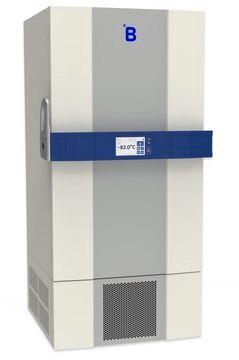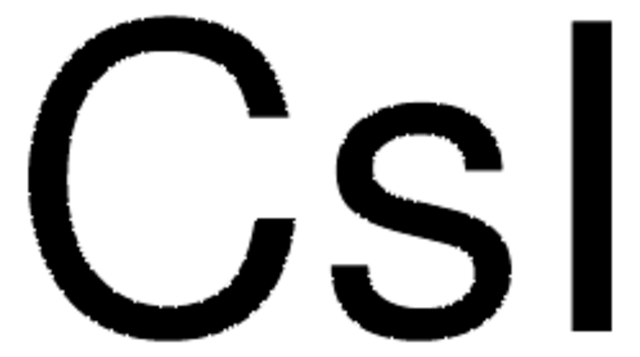449733
Cesium chloride
AnhydroBeads™, −10 mesh, 99.999% trace metals basis
Synonym(s):
Cesium chloride, Cesium monochloride
About This Item
Recommended Products
product line
AnhydroBeads™
Quality Level
assay
99.999% trace metals basis
technique(s)
centrifugation: suitable (density-gradient)
impurities
≤15.0 ppm Trace Metal Analysis
particle size
−10 mesh
mp
645 °C (lit.)
SMILES string
[Cl-].[Cs+]
InChI
1S/ClH.Cs/h1H;/q;+1/p-1
InChI key
AIYUHDOJVYHVIT-UHFFFAOYSA-M
Looking for similar products? Visit Product Comparison Guide
Related Categories
Application
Legal Information
accessory
signalword
Warning
hcodes
Hazard Classifications
Repr. 2
Storage Class
13 - Non Combustible Solids
wgk_germany
WGK 1
flash_point_f
Not applicable
flash_point_c
Not applicable
ppe
Eyeshields, Gloves, type N95 (US)
Certificates of Analysis (COA)
Search for Certificates of Analysis (COA) by entering the products Lot/Batch Number. Lot and Batch Numbers can be found on a product’s label following the words ‘Lot’ or ‘Batch’.
Already Own This Product?
Find documentation for the products that you have recently purchased in the Document Library.
Customers Also Viewed
Articles
Colloidal quantum dots (CQDs) are semiconducting crystals of only a few nanometers (ca. 2–12 nm) coated with ligand/surfactant molecules to help prevent agglomeration.
Our team of scientists has experience in all areas of research including Life Science, Material Science, Chemical Synthesis, Chromatography, Analytical and many others.
Contact Technical Service






